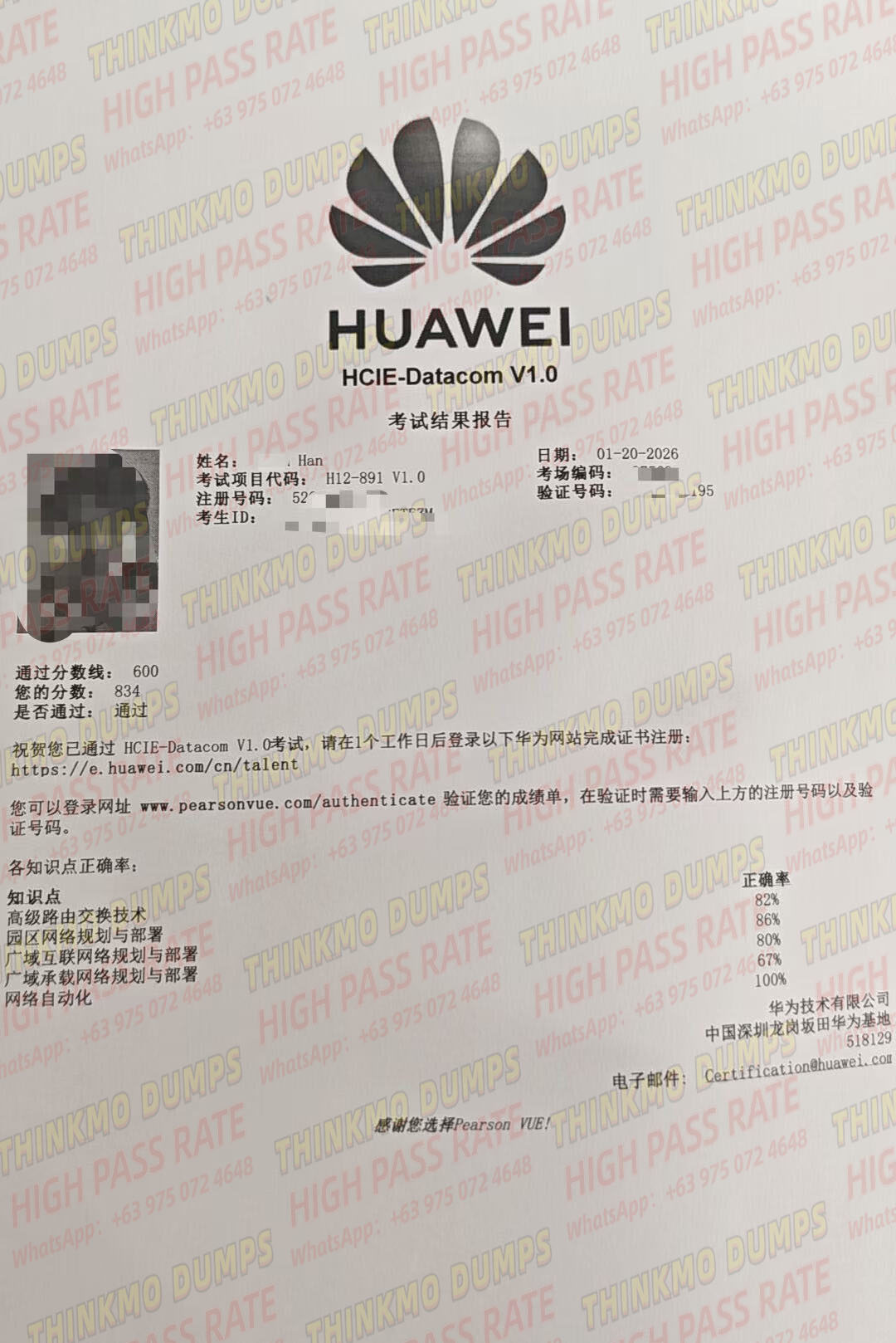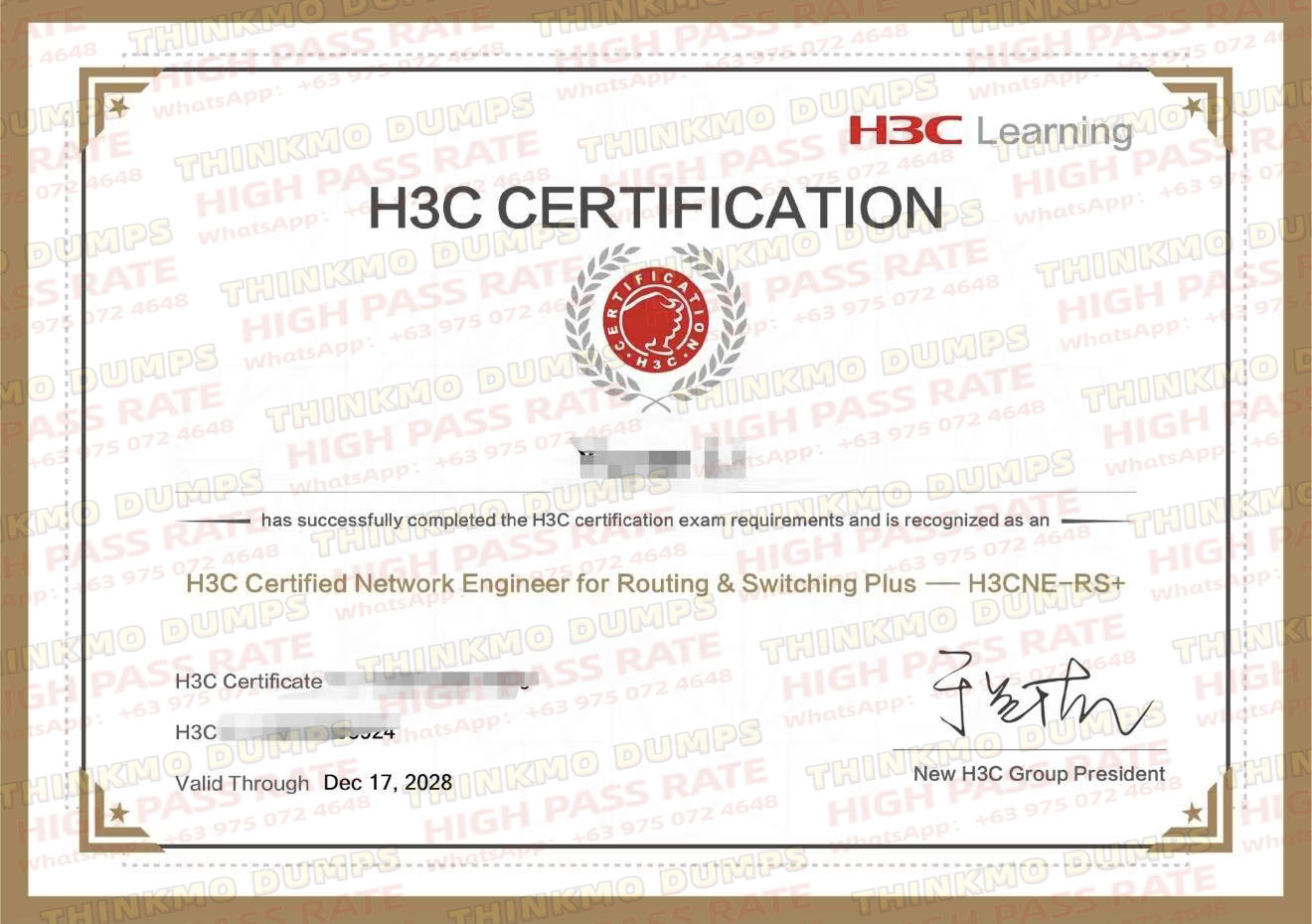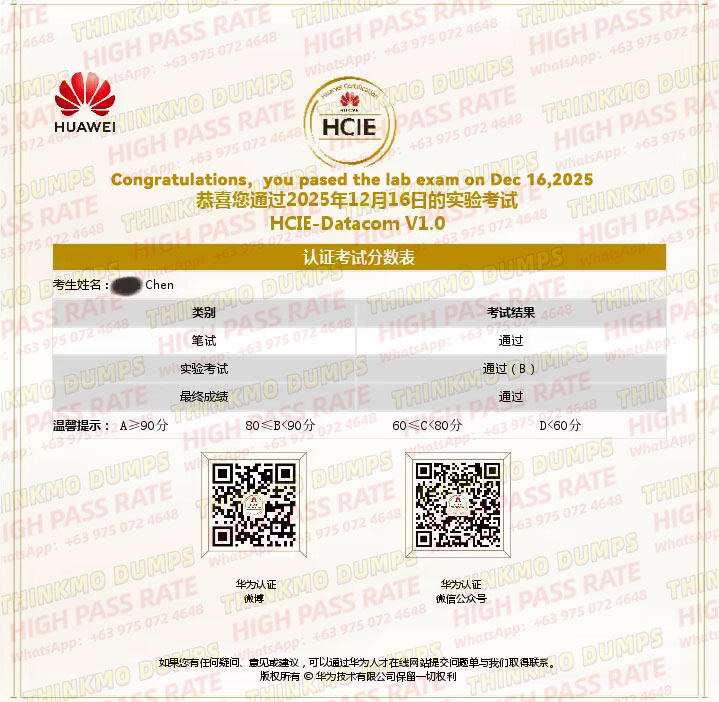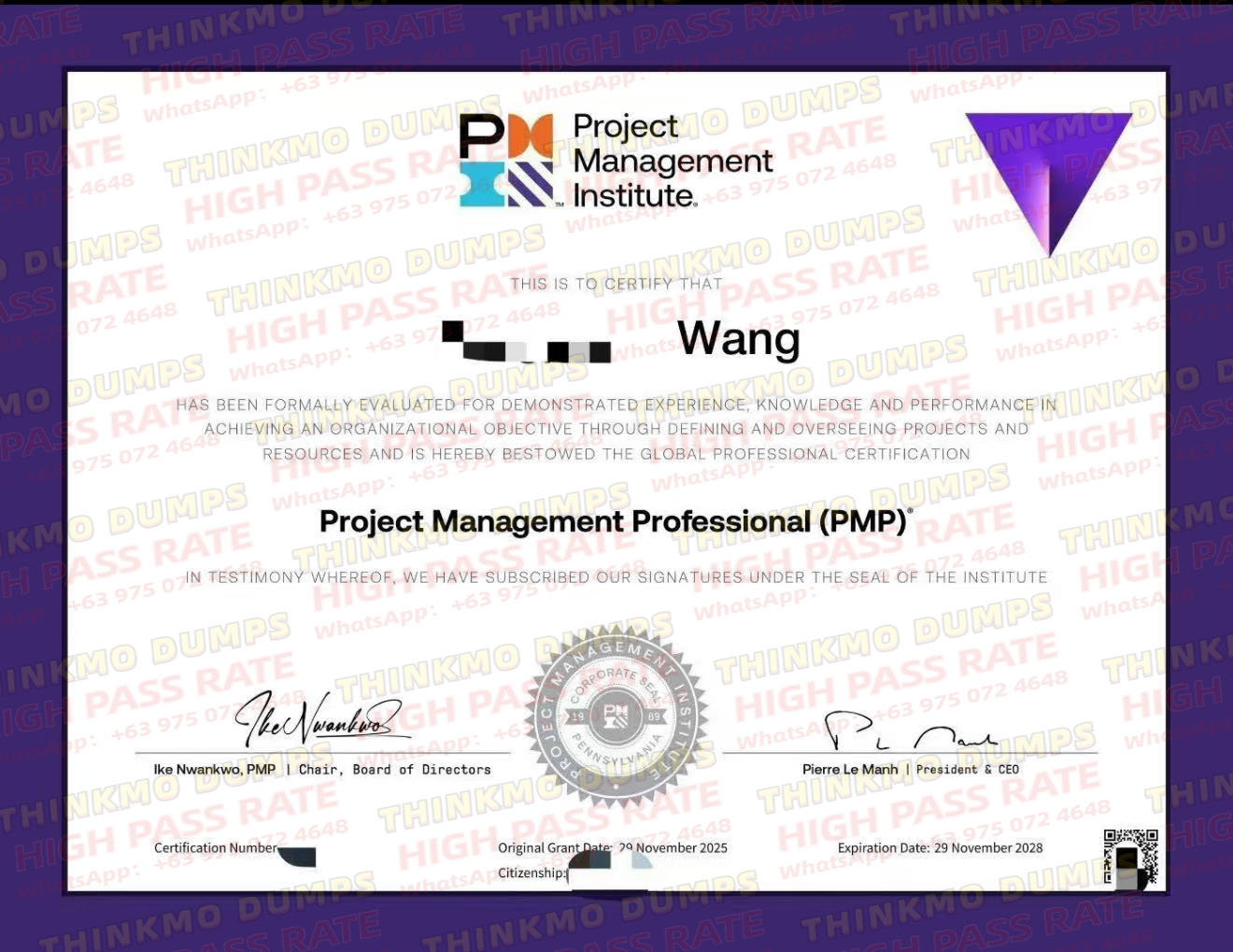How to Pass the Huawei HCIP Security Certification Exam?
Update time:2025-10-23
Many professionals aiming to enter the cybersecurity field often struggle with one question after discovering the Huawei HCIP-Security certification:
“Where should I start?”

They’re unsure what basics to review, which resources to use, or how to pace their preparation.
The truth is — HCIP-Security is not as difficult as it seems.It’s a mid-level certification focused on enterprise-level network protection and troubleshooting.
If you follow a clear strategy — understand the exam → build your foundation → study in stages — you can pass it confidently in 2–3 months.
Below is a step-by-step breakdown of the exam structure, key topics, and a practical preparation roadmap, with a focus on using dumps to help you succeed efficiently.
1.Core Overview
The Huawei Certified ICT Professional – Security (HCIP-Security), exam code H12-725, is Huawei’s mid-level security certification.
It focuses on deploying and troubleshooting enterprise security solutions, positioned between HCIA-Security (associate) and HCIE-Security (expert).
The exam is entirely written (no lab), but 80% of the questions are scenario-based, requiring logical understanding rather than rote memorization.

2.Exam Information
Format: Computer-based (online or in person)
Duration: 90 minutes
Score: 1000 points total;600 to pass
Question Types: Multiple-choice, multiple-select, true/false, fill-in-the-blank, drag-and-drop
Exam Focus: Real-world scenarios (e.g. firewall and cloud security group integration in hybrid cloud environments)

3.Six Core Exam Domains (by Weight)
(1)Next-Generation Firewall (NGFW) – 30%
Security policy configuration (allow/deny access between subnets)
NAT setup (source/ destination NAT)
High availability (HA) clustering and redundancy
(2) Intrusion Prevention & Antivirus – 15%
IPS signature updates, SQL injection & ransomware detection
Log analysis to identify attack sources
(3)VPN Technologies – 15%
IPSec VPN (site-to-site encryption)
SSL VPN (secure remote access for employees)
(4)Cloud Security Fundamentals – 10%
Huawei Cloud security group configuration
Basic Web Application Firewall (WAF) protection
(5)Endpoint Security & Access Control – 10%
EAD access control (endpoint compliance checks)
Security baseline inspections
(6)Data Security & Zero Trust – 10%
Chinese National Encryption (SM4)
Multi-Factor Authentication (MFA)

4.Required Knowledge Foundations
Networking Basics
Understand TCP/IP protocols, IP addressing, subnetting, and basic routing/switching (VLANs, static routes).
Real-world use: Troubleshooting VPNs or configuring firewall policies relies on solid IP logic.
Linux Basics
Core commands: cat, grep, and vim editing (i, ESC, :wq)
Real-world use: Many Huawei security systems run on Linux backends;log analysis and system inspection are critical skills.
5.Step-by-Step Study Plan
Phase 1: Foundation Review (1–2 Weeks)
Resources:
Free preview lessons (search “H12-725” on the Huawei Education Center)
Official HCIP-Security Certification Guide (available on Huawei’s technical support site)
Method:
Build a mind map for each topic module (e.g., “NGFW as the core of perimeter protection”).
Focus on understanding why a configuration is needed, not just memorizing terms.
Phase 2: Scenario Practice (3–4 Weeks)
Instead of formal lab training, use mock environments and scenario-based dumps to strengthen applied understanding:
NGFW configurations: simulate internal/external networks and set firewall rules.
IPS defense: identify SQL injection patterns and update the IPS signature database.
VPN setup: review IKE negotiation and tunnel establishment logic.
Cloud security: study ECS security group configurations that limit inbound ports (22/80).
Frequency: 1 hour per day, 3–4 weeks to master practical logic.
Phase 3: Dumps (1–2 Weeks)
Recommended Resources:
Study Strategy:
Solve 80 questions per day, reviewing incorrect answers using Huawei’s documentation.
Simulate full-length exams (2 papers × 120 minutes each).
Keep 1 min per single-choice, 2 min per scenario question.
6.Common Mistakes to Avoid
(1)Only memorizing answers without understanding operations — scenario-based questions account for ~30%, and require configuration reasoning.
(2)Ignoring new Cloud Security content — the latest version adds 10% cloud-related topics, often missing in older dumps.
(3)Not differentiating between similar concepts — the exam often tests when to use SSL VPN vs IPSec VPN, not syntax.
Pro Tip: Choose verified dumps that include scenario explanations and update logs, ensuring your materials align with the newest syllabus.
7.Summary
The Huawei HCIP-Security certification isn’t overly difficult — the challenge lies in not having a clear method.
If you first build a solid foundation in networking and Linux, then follow the “framework → scenario → question practice” process, you can pass within 2–3 months.
This certification carries tangible career value:
It qualifies you for roles such as Security Operations Engineer or Firewall Configuration Engineer.
Many Huawei partners and government-sector employers list HCIP-Security as a preferred qualification.
Entry-level salaries in major cities typically range from ¥12k–18k.
So if you’re serious about cybersecurity, stop hesitating.
Start reviewing the HCIP-Security dumps, master key topics one module at a time, and you’ll be well on your way to certification success — and a stronger, future-proof IT career.
“Where should I start?”

They’re unsure what basics to review, which resources to use, or how to pace their preparation.
The truth is — HCIP-Security is not as difficult as it seems.It’s a mid-level certification focused on enterprise-level network protection and troubleshooting.
If you follow a clear strategy — understand the exam → build your foundation → study in stages — you can pass it confidently in 2–3 months.
Below is a step-by-step breakdown of the exam structure, key topics, and a practical preparation roadmap, with a focus on using dumps to help you succeed efficiently.
1.Core Overview
The Huawei Certified ICT Professional – Security (HCIP-Security), exam code H12-725, is Huawei’s mid-level security certification.
It focuses on deploying and troubleshooting enterprise security solutions, positioned between HCIA-Security (associate) and HCIE-Security (expert).
The exam is entirely written (no lab), but 80% of the questions are scenario-based, requiring logical understanding rather than rote memorization.
2.Exam Information
Format: Computer-based (online or in person)
Duration: 90 minutes
Score: 1000 points total;600 to pass
Question Types: Multiple-choice, multiple-select, true/false, fill-in-the-blank, drag-and-drop
Exam Focus: Real-world scenarios (e.g. firewall and cloud security group integration in hybrid cloud environments)
3.Six Core Exam Domains (by Weight)
(1)Next-Generation Firewall (NGFW) – 30%
Security policy configuration (allow/deny access between subnets)
NAT setup (source/ destination NAT)
High availability (HA) clustering and redundancy
(2) Intrusion Prevention & Antivirus – 15%
IPS signature updates, SQL injection & ransomware detection
Log analysis to identify attack sources
(3)VPN Technologies – 15%
IPSec VPN (site-to-site encryption)
SSL VPN (secure remote access for employees)
(4)Cloud Security Fundamentals – 10%
Huawei Cloud security group configuration
Basic Web Application Firewall (WAF) protection
(5)Endpoint Security & Access Control – 10%
EAD access control (endpoint compliance checks)
Security baseline inspections
(6)Data Security & Zero Trust – 10%
Chinese National Encryption (SM4)
Multi-Factor Authentication (MFA)
4.Required Knowledge Foundations
Networking Basics
Understand TCP/IP protocols, IP addressing, subnetting, and basic routing/switching (VLANs, static routes).
Real-world use: Troubleshooting VPNs or configuring firewall policies relies on solid IP logic.
Linux Basics
Core commands: cat, grep, and vim editing (i, ESC, :wq)
Real-world use: Many Huawei security systems run on Linux backends;log analysis and system inspection are critical skills.
5.Step-by-Step Study Plan
Phase 1: Foundation Review (1–2 Weeks)
Resources:
Free preview lessons (search “H12-725” on the Huawei Education Center)
Official HCIP-Security Certification Guide (available on Huawei’s technical support site)
Method:
Build a mind map for each topic module (e.g., “NGFW as the core of perimeter protection”).
Focus on understanding why a configuration is needed, not just memorizing terms.
Phase 2: Scenario Practice (3–4 Weeks)
Instead of formal lab training, use mock environments and scenario-based dumps to strengthen applied understanding:
NGFW configurations: simulate internal/external networks and set firewall rules.
IPS defense: identify SQL injection patterns and update the IPS signature database.
VPN setup: review IKE negotiation and tunnel establishment logic.
Cloud security: study ECS security group configurations that limit inbound ports (22/80).
Frequency: 1 hour per day, 3–4 weeks to master practical logic.
Phase 3: Dumps (1–2 Weeks)
Recommended Resources:
Huawei Education Center official practice questions
Third-party dumps updated within the last 3 months (ensure coverage of cloud security topics)
Study Strategy:
Solve 80 questions per day, reviewing incorrect answers using Huawei’s documentation.
Simulate full-length exams (2 papers × 120 minutes each).
Keep 1 min per single-choice, 2 min per scenario question.
6.Common Mistakes to Avoid
(1)Only memorizing answers without understanding operations — scenario-based questions account for ~30%, and require configuration reasoning.
(2)Ignoring new Cloud Security content — the latest version adds 10% cloud-related topics, often missing in older dumps.
(3)Not differentiating between similar concepts — the exam often tests when to use SSL VPN vs IPSec VPN, not syntax.
Pro Tip: Choose verified dumps that include scenario explanations and update logs, ensuring your materials align with the newest syllabus.
7.Summary
The Huawei HCIP-Security certification isn’t overly difficult — the challenge lies in not having a clear method.
If you first build a solid foundation in networking and Linux, then follow the “framework → scenario → question practice” process, you can pass within 2–3 months.
This certification carries tangible career value:
It qualifies you for roles such as Security Operations Engineer or Firewall Configuration Engineer.
Many Huawei partners and government-sector employers list HCIP-Security as a preferred qualification.
Entry-level salaries in major cities typically range from ¥12k–18k.
So if you’re serious about cybersecurity, stop hesitating.
Start reviewing the HCIP-Security dumps, master key topics one module at a time, and you’ll be well on your way to certification success — and a stronger, future-proof IT career.
I'm your man who have the 100% valid dumps , buy it now for 50% off to clear your exam!
Click it ↓↓

Hot article
-
 1
1 1. ThinkMo Precise Question Bank: Ace HCIE Written
上传:2026-01-23
-
 2
2 Triple H3CNE/H3CSE Passes | ThinkMo Christmas Succe
上传:2025-12-25
-
 3
3 Success Streak: ThinkMo’s Dec HCIE-Datacom Win
上传:2025-12-24
-
 4
4 ThinkMo Guide: Cisco & Huawei Certification Com
上传:2025-12-22
-
 5
5 Pass CCIE/CKA Exams with ThinkMo’s Top Question B
上传:2025-12-19








